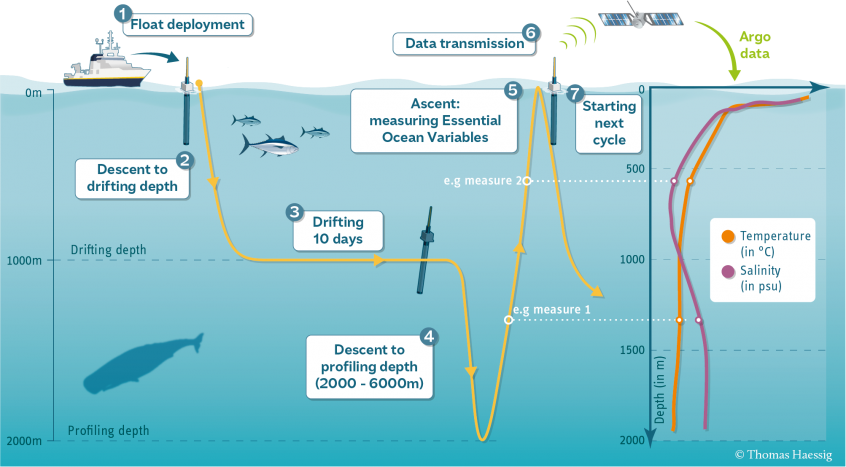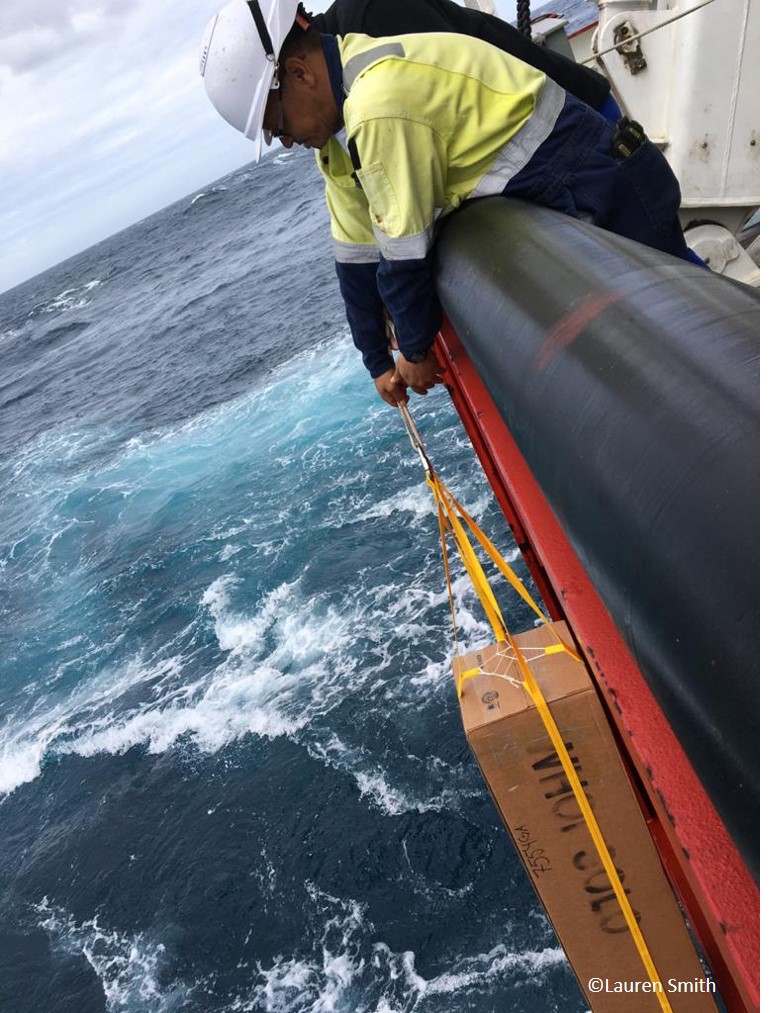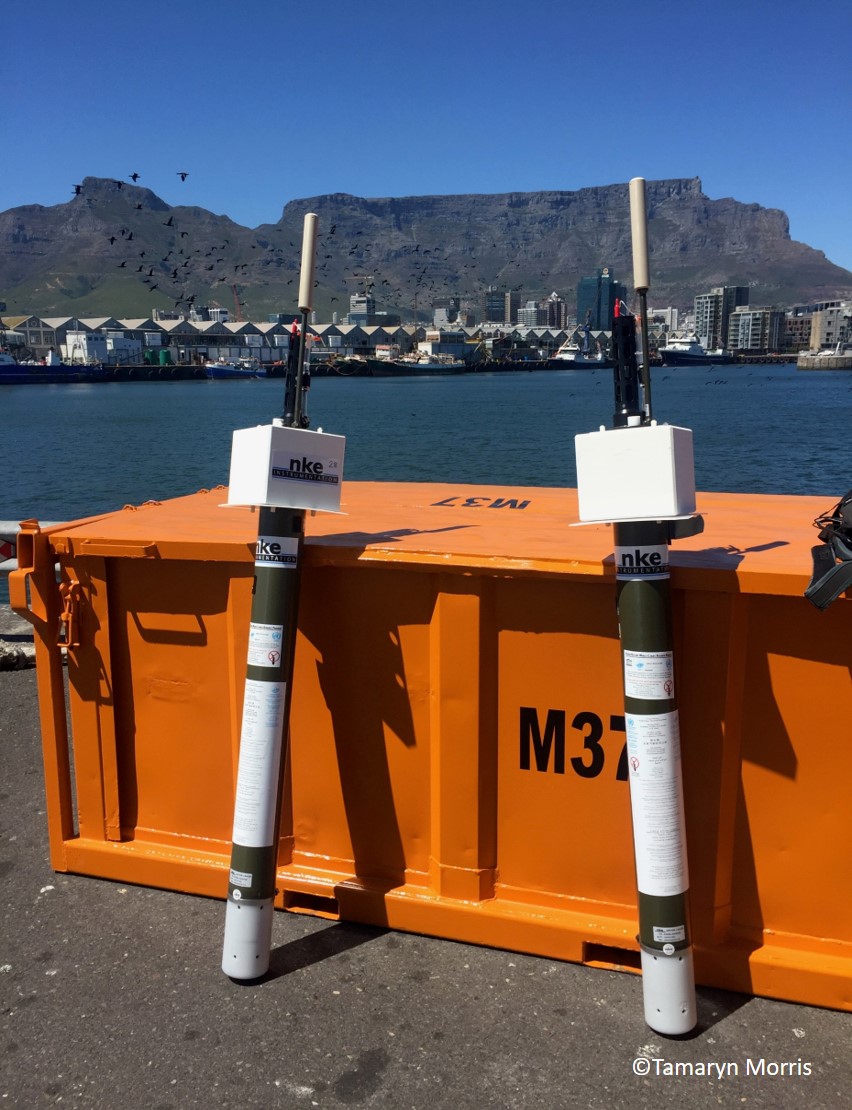Argo floats, named for the vessel Argo that Jason and his Argonauts built and sailed to capture the Golden Fleece in Greek Mythology, are autonomous free-floating ocean robots. They are deployed globally from research vessels and vessels of opportunity such as yachts and container ships, to acquire profile data from the world's oceans. Argo floats typically profile the ocean every 10 days from 2000 db to the surface, uploading their data to passing satellites, and then descending again to 1000 db for nine days until their next mission profile (Fig. 1). Core Argo floats are fitted with pressure, temperature and conductivity sensors (the latter of which is used with temperature to derive salinity) and have been deployed since 1999 (Roemmich et al, 2019). By 2018, over 2 million profiles of the upper 2000 m of the global oceans had been acquired using Argo floats. Quadrupling measurements made by other ocean profiling instruments over the 100 years prior to this accomplishment. Argo floats have been further developed to measure the deep ocean up to 4000 and 6000 db as part of the Deep Argo mission. In addition, to understand the health and productivity of the ocean, Argo floats have been fitted with sensors as part of the Biogeochemical (BGC) Argo mission which includes dissolved oxygen, pH, chlorophyll, nitrate, suspended particles and downwelling irradiance.
The South African Weather Service Marine Team is a part of the Argo community, in that we work with Argo teams to deploy Argo floats in critically understudied regions such as the Southern Ocean, South Atlantic and South-West Indian Ocean. We also work extensively with outreach teams both nationally and internationally to educate learners and students on the value of ocean observing technologies on our understanding of the global oceans and how they interact, but also around the technology and innovation Argo floats represent. Finally, we make use of Argo float data to understand the current systems around South Africa and how they impact our weather and climate systems.
For more information on the Argo program: https://argo.ucsd.edu/
For more information around schools taking part in the Adopt-a-Float initiative undertaken opportunistically (research cruise dependent) in collaboration with the SAEON Egagasini Node, please contact: tamaryn.morris@weathersa.co.za
Roemmich, D., Alford, M.H., Claustre, H., Johnson, K., King, B., Moum, J., Oke, P., Owens, W.B., Pouliquen, S., Purkey, S. and Scanderbeg, M., et al. 2019. On the future of Argo: A global, full-depth, multi-disciplinary array. Frontiers in Marine Science, 6, p.439.


